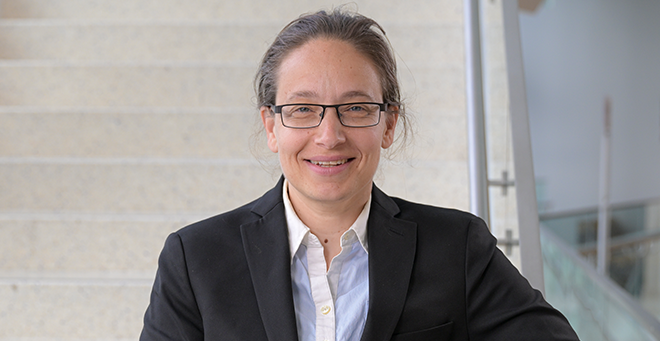
Photo: ShutterStock
The Eunice Kennedy Shriver Center at UMass Chan Medical School is one of three sites in the U.S. participating in a study aimed at better understanding the social communication and language skills of infants and young children with siblings with autism spectrum disorder.
UMass Chan is a recruitment site for Promoting Early Intervention Timing and Attention to Language, or PETAL, and is working in partnership with teams from Boston University and UCLA. The research team is working to determine the timing of interventions among children with increased likelihood of autism diagnoses by virtue of having an older sibling with autism.
“This is all about the timing of early intervention, which is critical for ensuring best possible outcomes for these infants and families,” said Sohye Kim, PhD, assistant professor of psychiatry & behavioral sciences and a co-investigator overseeing recruitment for the study. “It’s already a lot to support an older child with autism, so making a transition to having another infant can be a challenge for these families. We want to come alongside, develop relationships and support them in the process.”
“The study will provide critical data to the field so that we know how to optimize early intervention,” Dr. Kim added.
The PETAL study consists of virtual support and six home visits occurring from when the baby is 6 to 8 months old until they are two years old. Researchers assess language and cognitive skills, measure brain activity, and videotape the parent and baby while they play. The baby wears a digital recording device in a vest to record a full day of language environment. During each visit, families are provided with developmentally appropriate activity cards, toys and books. The research team also provides remote coaching sessions to support parents and teach them strategies to promote language development in their infants.
Marisa Petruccelli, PsyD, assistant professor of pediatrics, who is a co-investigator and oversees assessment, said the research team is using the Mullen Scales of Early Learning, a developmental assessment tool for children, to collect expressive language outcome data as well as the Autism Diagnostic Observation Schedule, second edition.
“With this data, we can look at things like vocalization, gesture, receptive language, joint engagement, object play and the child’s diagnosis of autism when they reach the age where that can be diagnosed,” Dr. Petruccelli said.
Helen Tager-Flusberg, PhD, director of the Boston University Center for Autism Research Excellence and principal investigator on the study, said PETAL is the first study to investigate how to implement very early interventions specifically designed to support language development during the critical period when infants start to acquire the building blocks of language.
“We are excited to see how effective our early support and coaching will be to families and to learn how early brain markers might identify those infants who could benefit the most from coaching.” Dr. Tager-Flusberg said. “The study is very important as more children are diagnosed with autism and many of them experience language delays.”
The Boston University Center for Autism Research Excellence is responsible for the coding, analyses and interpretation of the language assessments carried out during study participants’ visits at UMass Chan and UCLA. A member of the Boston University team collects data on home visits with UMass Chan researchers.


